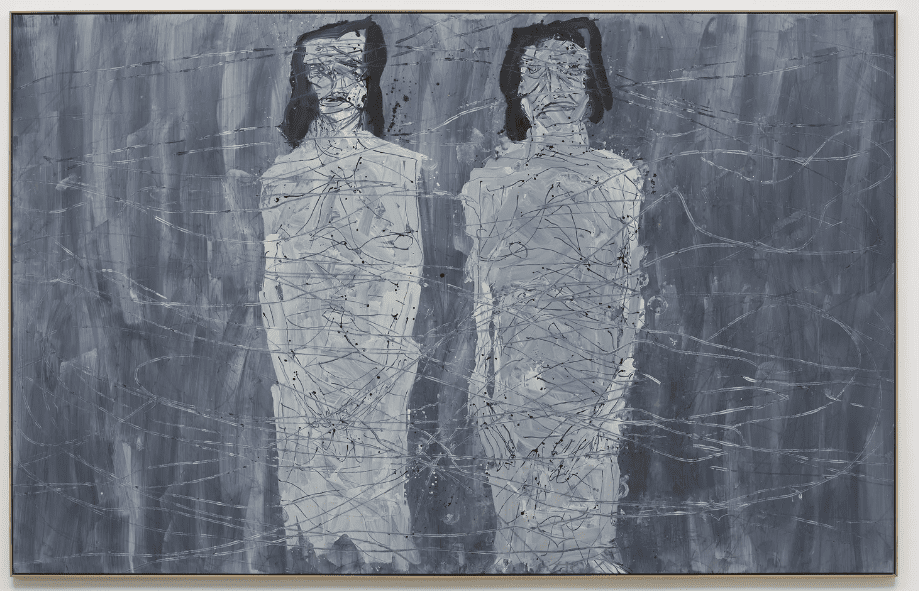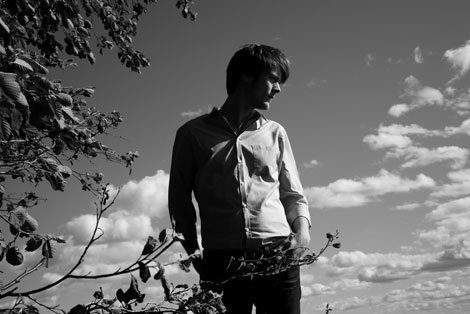Dylan Mondegreen‘s eponymous album, a soft-voiced collection of slick popsongs in the fey, beta-male mode, tends toward the dilute culmination of a Platonic chain that draws directly from Prefab Sprout and Deacon Blue.
Merging a melodic sensibility that owes much to Johnny Marr with a tightly-drilled string section, Borge Sildnes‘ vocal delivery sits snugly in a deep bed of slick, faultless, session-musician soundwash which only occasionally displays a quirk or idiosyncrasy to draw attention away from the earnest lyrical explorations of friendship, love, unrequited friendship, unrequited love and the innocent (but hardly original) onrush of gobsmacked emotion felt by young men on the occasion of becoming a father. It begs to be damned with faint praise.
[box] slick, faultless, session-musician soundwash[/box]
And faint praise would suit it very well. It is difficult to conjure stronger opinions on such a well-produced slice of indie-pop. ‘It Takes Two’ (the aforementioned lament for a one-sided friendship) trips along all sunny in a steel-drum led melody which could be the distilled essence of summer in sonic form, were it not for the pathos of its lyrics:
‘everyone seems to be on your side
I can see why you’re loved and liked.
I only wish the best for you.
But to keep up a friendship,
It takes two’
It’s a fantastic popsong, with actual steel drums (as opposed to their sampled and soundbanked equivalents) played with aplomb by Martin Horntveth. Frivoulous and uplifting in its instrumentation, but with a poignancy to its lyrics to add a touch of acid to the overall impression.
Only…. That pathos. That line: ‘I only wish the best for you’. Never a statement to inspire confidence in the sincerity of the utterer, is it?
Certainly not when it is followed by the word ‘but’. A splitting of hairs this may be, but the line is illustrative of a passive-aggressive streak that runs through the album. A streak which, once it is noticed, becomes impossible to ignore. Far from conveying the sensitive heart of a man who cares too much, it suggests The Man from Alanis.
‘What do you get when kiss a girl?
You get enough germs to catch pneumonia.
After you do, she’ll never phone ya.
I’ll never fall in love again’ –
Baccahrach and David, ‘I’ll Never Fall In Love Again’
Hal David’s juxtaposition of eternal with trite; of sheer effrontery (pneumonia/phone ya); of resigned heartbreak with self-effacing humour, is perhaps the original, perfect Platonic form in the continuum that is the clever indie-pop lyric. Sildnes, reaching so markedly for the poignancy of Paddy McAloon’s ‘Some things hurt more, much more than cars and girls’, is already striving to emulate a secondary source, and not quite managing to equal that.
Dylan Mondegreen‘s Baccarach-lite orchestration and arrangement is slick, swish, lush and lucid in perfect measure, the Marr-like treble frills announcing to the listener that deep, eternal lyrics are to be expected.
Alas, what we get instead is lyrical content which suggests bitterness rather than resignation; thwarted entitlement rather than stoic humour.
[box] non-abrasive[/box]
These seem such tiny nuances to hold against an album so lovingly crafted, but nuances are elevated to high importance in this non-abrasive musical style which is so rarely attempted. Rarely attempted because gathering the cadre of musicians necessary to create this sort of lavish smoothness takes more effort than getting four kids with guitars together (the album boasts twelve musicians playing at least twenty-five instruments).
But it is also rarely attempted because the pitfalls are so numerous. A touch too much production and the effect is daytime chatshow theme; a touch too much lyrical poignancy to balance the syrupy instrumentation and the effect is mawkish.
There are high points to the album – ‘You Make it Easy’ celebrates a loved one’s talent for being easy to talk to without awkwardness or self-consciousness, as good a subject for a love song as any. Maria Due’s superhigh vocal harmonies carry the sincerity of the song – a sincerity that is often lacking in Sildnes’ vocal delivery, which seems emotionally remote in order to retain the controlled tones he makes his trademark style. Something of an issue, that.
Throughout, the musicianship is exemplary, with the string section in particular illustrating the vast superiority of live musicians over sampled recordings (it’s not so much about how the instruments sound as the little accents and quirks the players bring to the composition). The crescendo of ‘Keeper of Secrets’ is a tour de force involving nine top-drawer musicians going full pelt.
Later, the interplay between vocalists on the closing track shines out despite the maudlin nature of the song’s lyrics and an arrangement that almost strives to strip the individuality of the instruments away in favour of an easy-listening homogeneity. What it does have though, is a tragic stoicism to Sildnes’ vocal delivery that would fit well elsewhere on the album, were he to unleash it more often.
Much of Borge Sildnes‘ vocals on Dylan Mondegreen sacrifice audible emotion in favour of delivering the lines in an unjarring style. For that approach to work, lyrics need to be pristine and capable of displaying complex, often contradictory emotion. Sildnes has a smooth, pleasing voice, and this is a fine album of contemplative Baroque indie pop in the style of Prefab Sprout, Danny Wilson or Deacon Blue, but it isn’t quite eternal either.
Borge Sildnes/Dylan Mondegreen already has a healthy following (previous albums have sold into respectable five-figures), and shows a fine talent for his craft. It seems ironic though. In gathering an ensemble of live musicians who convince totally of the superiority of real instruments over arrangements cobbled together from LogicPro soundbanks, the most anodyne element of the album is the lead singer’s voice.

An observer first and foremost, Sean Keenan takes what he sees and forges words from the pictures. Media, critique, exuberant analysis and occasional remorse.




















